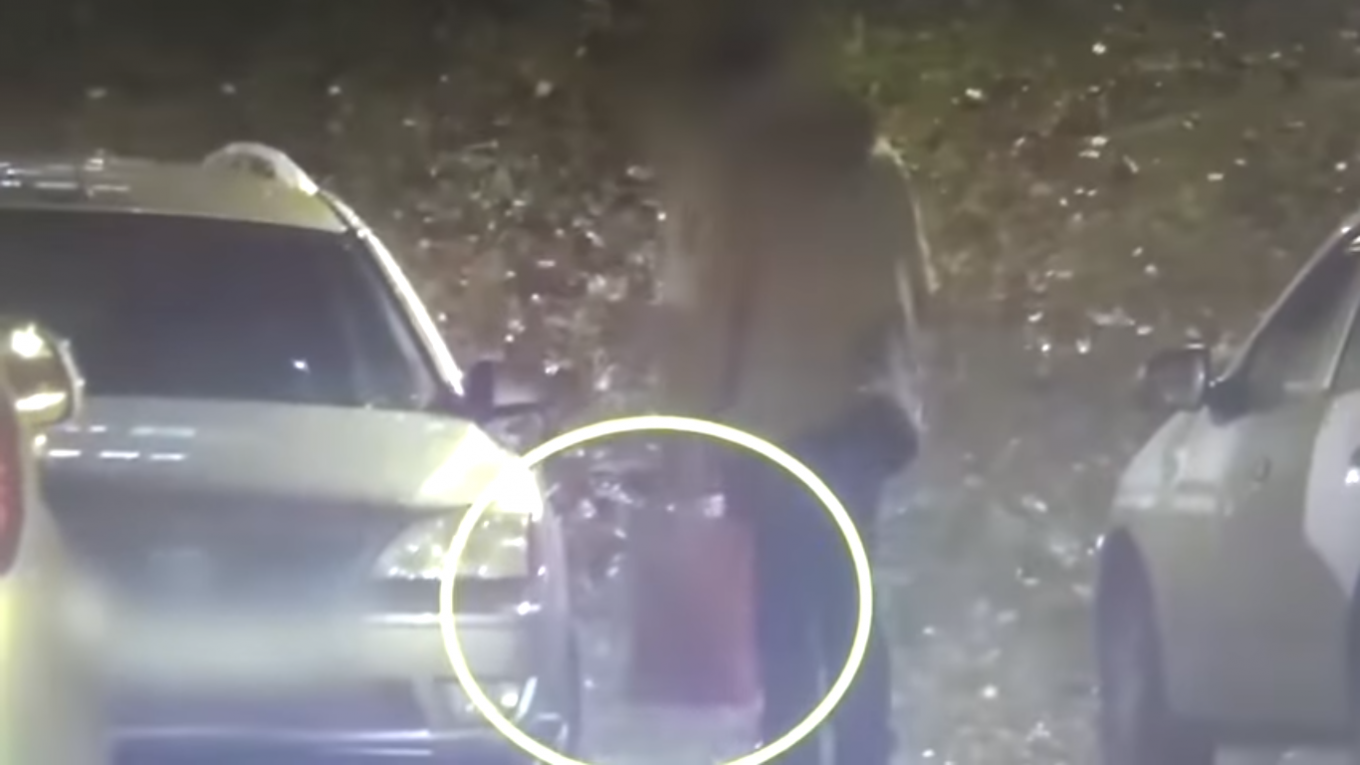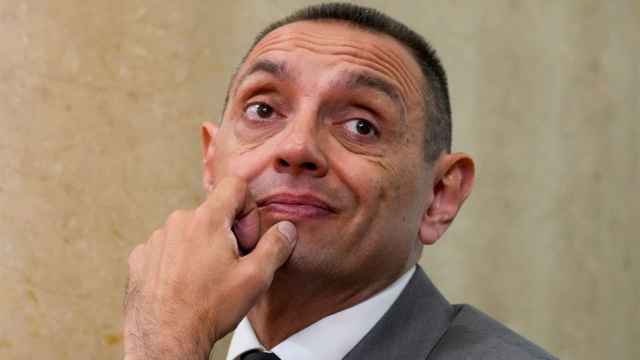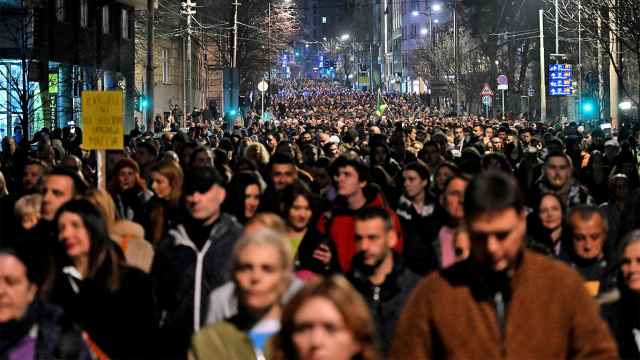Serbian President Aleksandar Vucic ordered an investigation on Wednesday into a video clip that purportedly shows a Russian intelligence officer handing over money to a Serbian man, in an incident that could strain normally warm bilateral relations.
A Bulgaria-based investigative reporter, Christo Grozev, said on his Twitter account at the weekend that the clip, posted on YouTube, showed the assistant military attache at Russia's embassy in Belgrade meeting a Serbian agent in a sting operation.
Grozev said he used Microsoft face-recognition software to identify the Russian man who wears a black leather jacket.
The clip shows the two men warmly greeting each other in Belgrade, drinking beer and exchanging plastic bags. The Serb, whose face is obscured, later sits in a car, takes an envelope from the bag and counts out the banknotes it contains.
Russian officials in Moscow and Belgrade could not be immediately reached for comment.
Announcing the president's decision to order an investigation, Serbia's Prime Minister Ana Brnabic told the Serbian daily Blic: "If this turns out to be true, this would be a serious matter and a problem for us."
Serbia's Security and Information Agency (BIA) has confirmed the authenticity of the video, the state Tanjug news agency said. More information will be made public after Serbia's national Security Council meets on Thursday, Tanjug added.
The office of Serbian Interior Minister Nebojsa Stefanovic said he had traveled to Moscow on Wednesday for talks on "security challenges" and "cooperation in combating crime" with the head of Russia's Security Council, Nikolai Patrushev. It did not say whether the trip was connected to the video.
Last month, Sergey Naryshkin, the head of Russia's Foreign Intelligence Service (SVR) said the two countries were performing "complex mutual operations" to protect their external interests, without elaborating.
Russia and Serbia, both Slavic, majority Orthodox Christian countries, have strong political, cultural and economic ties. Moscow backs Belgrade in refusing to recognize the independence of Kosovo, a former Serbian province.
Serbia's armed forces use Russian technology, jet fighters and tanks. Serbia recently acquired Russia's Pantsyr anti-aircraft weapon system, risking sanctions from the United States.
Serbia is also dependent on Russian oil and gas, and the largest local oil company, Naftna Industrija Srbije, is majority-owned by Russia’s Gazprom.
A Message from The Moscow Times:
Dear readers,
We are facing unprecedented challenges. Russia's Prosecutor General's Office has designated The Moscow Times as an "undesirable" organization, criminalizing our work and putting our staff at risk of prosecution. This follows our earlier unjust labeling as a "foreign agent."
These actions are direct attempts to silence independent journalism in Russia. The authorities claim our work "discredits the decisions of the Russian leadership." We see things differently: we strive to provide accurate, unbiased reporting on Russia.
We, the journalists of The Moscow Times, refuse to be silenced. But to continue our work, we need your help.
Your support, no matter how small, makes a world of difference. If you can, please support us monthly starting from just $2. It's quick to set up, and every contribution makes a significant impact.
By supporting The Moscow Times, you're defending open, independent journalism in the face of repression. Thank you for standing with us.
Remind me later.






